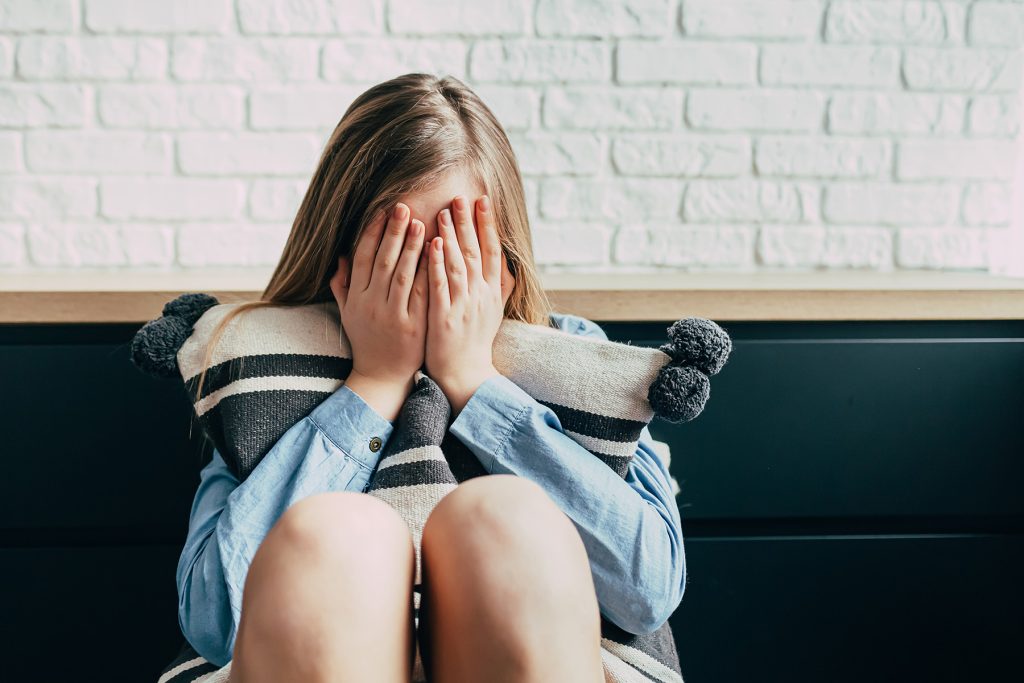- Sponsored Content

In Singapore’s fast-paced and competitive world, associated with the Covid pandemic and its consequences, anxiety has become a prevalent mental health concern among children and teenagers. Identifying subtle signs of anxiety that often go unnoticed is important. Understanding and recognising these hidden signs as soon as possible can pave the way for early intervention and support, fostering healthier emotional well-being in the young population.
Physical Complaints
Frequent unexplained physical complaints like headaches and stomach-aches may signal underlying anxiety. The resulting stress and tension can lead to severe discomfort, prompting visits to GPs and emergency services, where medical issues are ruled out. These physical pains often mask hidden psychological triggers and problems.
Changes in Sleep Patterns
Sleep disturbances are common signs of anxiety in children and teenagers. They may have trouble falling asleep, experience restless nights, or wake up frequently. Sometimes, this will be combined with nightmares and the need to go to the parent’s bed. On the other hand, some children may oversleep to escape their anxious thoughts and feel very tired after a day of experiencing many negative thoughts. These shifts in sleep patterns can negatively impact their overall well-being, leading to fatigue and difficulty concentrating during the day.
Avoidance and Withdrawal
Children and teenagers grappling with anxiety often avoid situations that trigger fear or discomfort. They may withdraw from social interactions and school activities or even refuse to attend school. Avoidance and withdrawal can exacerbate anxiety and hinder the children’s social and academic development.
Perfectionism and Overachievement
Often, children and teenagers with a lot of ambition and determination can also have excessive perfectionism and overachievement traits, which can be a sign of hidden anxiety. Some children and teenagers may feel pressure to excel in every aspect of their lives to cope with their underlying fears. It is important to help them balance encouraging success and instilling a sense of self-worth beyond academic or extracurricular achievements.
Irritability & Emotional Outbursts
Anxiety can manifest as heightened irritability and emotional outbursts in children and teenagers. The constant internal turmoil they experience can make them more reactive to external triggers, resulting in angry or tearful outbursts. These emotional fluctuations can confuse the young individual and those around them, making it essential to address the root cause. These can be mistaken as being behavioural difficulties.
Hypersensitivity to Criticism
Anxious children and teenagers may have an increased sensitivity to criticism or perceived negative feedback because their self-esteem might be affected. They may take constructive comments personally and be overly self-critical. This hypersensitivity can further fuel their anxiety, impacting their self-esteem and confidence.
Excessive Worrying
Excessive worrying, which can lead to panic attacks, is particularly common among teenagers. These panic attacks entail intense episodes of overwhelming fear and physical discomfort, including rapid heart rate, shortness of breath, trembling, and dizziness. Prompt recognition and addressing of these attacks are crucial, as they can be easily mistaken for signs of a physical ailment, compounding anxiety for both the child and their parents.
By incorporating Psychology services as part of our GP practice, we aim to provide comprehensive and holistic healthcare to our patients. Mental health plays a crucial role in overall well-being, and offering specialised psychological services in conjunction with medical care ensures early identification and intervention for emotional concerns.
Recognising the hidden signs of anxiety in children and teenagers is crucial for early detection and intervention. For more information – https://www.imc-healthcare.com/psychology-services/
Article by – Emmanuelle Mollet O’Grady

Emmanuelle Mollet O’Grady is a fully qualified French-trained Clinical Psychologist with 20 years of clinical experience and the benefit of helping many children and families throughout her career in the USA, France, Ireland and Singapore.








